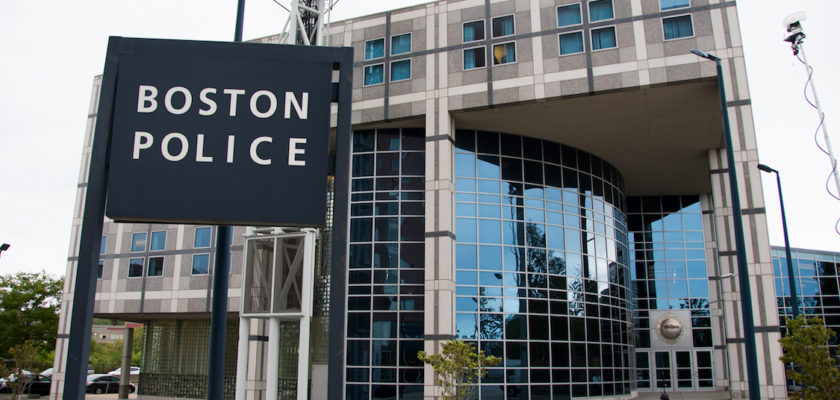By Alex Eng, deputy city editor
The union for the Boston Police Department (BPD) agreed to extend the ongoing police body camera pilot program by six months, according to a statement from the office of Mayor Martin J. Walsh on Monday.
The Body Worn Camera Pilot Program, which was proposed in September 2015 and began one year later after community feedback, called for up to 100 patrol officers to be equipped with body cameras that record on-duty police activity. The extension grants $500,000 of the 2017 municipal budget to fund the pilot through Sept. 11, 2017.
The agreement between the Boston Police Patrolmen’s Association (BPPA), BPD and Walsh came after previous controversy when the BPPA filed a court injunction to stop the pilot program in August 2016. BPPA’s injunction was denied by a Suffolk County judge in September 2016, as The News previously reported.
The BPPA could not be reached for comment by press time.
“The extension is a positive development and I look forward to continuing to build on the success of this pilot program,” Walsh said in the statement. “We are fortunate to have one of the best police forces in the country and our officers work hand in hand with the community to make all neighborhoods safer.”
The extension was granted to collect more data for future analysis of the efficacy of body camera use, according to the statement.
Northeastern University School of Criminology director Anthony Braga has been studying body camera implementation to BPD since the program began last September, in addition to his previous research and collaboration with the BPD to improve its homicide solution rate last November.
“We’re going to be evaluating whether the cameras have any impacts on officer behaviors and citizen behaviors in encounters and using metrics to see if the civility of citizen-police encounters are influenced by the cameras,” Braga said in an interview with The News in January.
With the cooperation of BPD and the assistance of Northeastern graduate students, Braga’s study involves a randomized experiment comparing 100 officers assigned to wear body cameras and 100 officers not wearing cameras. Braga selected the 100 officers to receive the experimental treatment himself after no officers volunteered, WBZ reported in August 2016.
Data on instances of resisting arrest, use of force, assaults on officers and other factors such as officers’ and citizens’ races will continue to be collected through September 2017 to assess the impact of the body camera program, which could result in permanent adoption of body cameras throughout BPD, Braga said.
The pilot program extension could provide more data on crime statistics and body camera usage as spring and summer approach, BPD Commissioner William B. Evans said.
“I am pleased that the pilot program will be continuing through what tends to be our busiest months of the year,” Evans said in Monday’s statement. “Extending through the summer will give us the opportunity to keep the body worn cameras out in the community and will provide additional data to assist with the assessment of the program.”
BPD will request the municipal government to allow Braga to begin analyzing collected data over the past few months of the pilot program within two weeks, according to Walsh and Evans’s joint statement. Braga’s investigation will also compare body camera technologies and vendors as well as strategize practices for BPD to most effectively train officers to use the cameras.
In January, Braga said the results of his research could either support or debunk people’s concepts of how body cameras would impact policing.
“There are some folks who think that when you put cameras on officers, they’re going to be less proactive,” Braga said. “Cameras might influence the likelihood of an arrest.”
Photo by Brian Bae









